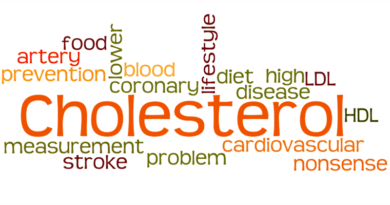Type 2 diabetes & diet – how low should low carb be?

Executive summary
* A study was published in the BMJ in mid-January 2021. It was a systematic review and meta-analysis of randomised controlled trials, which examined remission of (type 2) diabetes (T2D) with low and very low carb diets.
* The systematic review found 23 relevant trials, with a minimum 12 week duration, involving 1,357 people. Approximately half the trials met the criteria for a very low carb diet (VLCD) (<50g day <10% calories) and half met the criteria for a low carb diet (LCD) (<130g/day <26% of calories).
* The main finding was that, at six months, compared with control diets, LCDs and VLCDs pooled together achieved higher rates of T2D remission. The control diets tended to be low fat diets.
* The Number Needed to Treat for this intervention was 3, which is excellent for a medical intervention, suggesting that a low or very low carb diet should be considered for putting T2D into remission rather than a low fat diet.
* However, this finding ceased to be significant when remission was assessed without medication still being used.
* Weight loss was better at 6 months for the LCD/VLCDs compared to the controlled diet. There was no significant difference at 12 months.
* HbA1c was lower at 6 months for the LCD/VLCDs compared to the controlled diet. There was no significant difference at 12 months.
* When there were sufficient data to compare LCDs and VLCDs with each other, VLCDs were less effective than LCDs for weight loss at six months. This effect was explained by diet adherence i.e. patients who were highly adherent to VLCDs did much better than less adherent VLCD patients.
* Regarding safety, there were no significant differences in adverse events or serious adverse events at 6 or 12 months between the LCDs/VLCDs and the control diets.
* This study prompts reflection that low carb diets may be just as effective, if not more so, than very low carb diets – taking into account adherence.
Introduction
Many thanks to Mark Benson for this week’s topic. Mark is a recently retired ophthalmic surgeon, who was involved in the treatment of diabetic retinopathy throughout his career. That would certainly drive someone towards trying to find a way to avoid having to perform such procedures and it drove Mark towards the dietary guideline/carbohydrate intake debate. Mark spotted an article which was published on January 13th, 2021. The article was called “Efficacy and safety of low and very low carbohydrate diets for type 2 diabetes remission: systematic review and meta-analysis of published and unpublished randomized trial data” (Ref 1). He shared that it was being reported on social media as low carb eating would only benefit diabetics for a few months.
If you recall our review of the hierarchy of evidence (Ref 2), from the title of this paper alone we know this is at the top of the pyramid for quality of evidence. It’s a systematic review – which means that rigorous attempts have been made to find all relevant studies (not cherry-picked studies). It’s a systematic review of randomised controlled trials, which is superior to a systematic review of population studies. It includes published and unpublished data (although the latter has not been peer-reviewed). It also includes a meta-analysis – which is the pooling together of studies to see what the combined data show us. Finally, this is a topic of much interest to us – low carb and very low carb diets for putting type 2 diabetes (T2D) into remission.
The rest of this article is available to site subscribers, who get access to all articles plus a weekly newsletter.
To continue reading, please login below or sign up for a subscription. Thank you.




